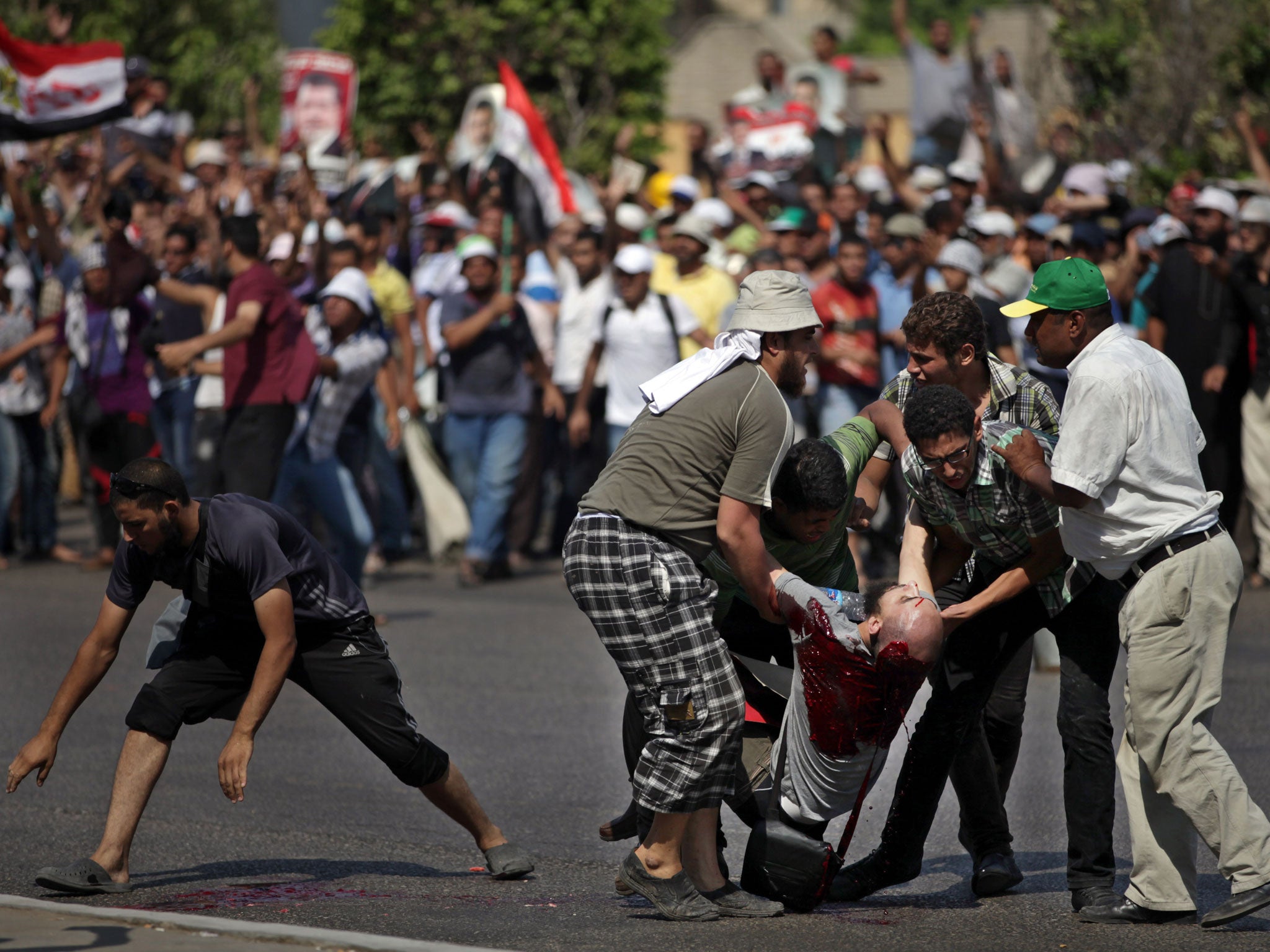Now Egypt's common enemy has gone, the opposition's future looks disunited
'They could only agree on one thing over the past year - and that was how much they hated the Muslim Brotherhood' says one observer

Your support helps us to tell the story
From reproductive rights to climate change to Big Tech, The Independent is on the ground when the story is developing. Whether it's investigating the financials of Elon Musk's pro-Trump PAC or producing our latest documentary, 'The A Word', which shines a light on the American women fighting for reproductive rights, we know how important it is to parse out the facts from the messaging.
At such a critical moment in US history, we need reporters on the ground. Your donation allows us to keep sending journalists to speak to both sides of the story.
The Independent is trusted by Americans across the entire political spectrum. And unlike many other quality news outlets, we choose not to lock Americans out of our reporting and analysis with paywalls. We believe quality journalism should be available to everyone, paid for by those who can afford it.
Your support makes all the difference.After arriving with his aides at the sprawling Heliopolis Palace in eastern Cairo, Egypt's new president probably did not have much time to admire its imposing, neo-Moorish splendour.
Emerging there yesterday for the first time as Egypt's leader, interim leader Adly Mansour held a meeting with his Interior Minister and General Abdel Fattah el-Sissi - the army chief who, under the weight of millions of protesters, thrust him into the new job.
There was also a meeting with the leaders of Tamarod, the grassroots anti-government campaign which helped trigger the June 30 revolt.
The leaders of the movement pride themselves on its apolitical origins. Yet the fall of Mohamed Morsi has opened many questions about how the transition period will be managed by the disparate political parties which will now be vying for influence.
Most of the liberal, secular and leftist groups who eventually signed up to the campaign were drawn together by a shared opposition to the Egyptian President.
Now that the common enemy has gone, there are questions about whether they can remain united prior to planned elections - or instead succumb to the factionalism which has thwarted past progress.
"They could only agree on one thing over the past year," said Shadi Hamid, director of research at the Brookings Doha Center. "And that was how much they hated the Muslim Brotherhood.
"If you look at what each of them stands for then they are very different."
Most of those forces which spearheaded the Brotherhood's downfall appear united on the basic transitional road map as outlined by the army.
The president, a former top judge, will first issue a constitutional declaration outlining the powers of state; a "salvation government" of non-political technocrats will be formed; the constitution will be amended, and then parliamentary and presidential elections will take place.
During the first steps of the process yesterday, there was confusion when Mohamed el-Baradei, the Nobel laureate and leading liberal, reportedly accepted the new Prime Minister's post, according to the state news agency. The authorities later backtracked, saying a decision had not been taken yet.
It was suggested that the fundamentalist Al Nour Party, who supported Morsi's ousting, had blocked the move.
If the military's statement is taken at face value, President Mansour will now have complete authority in position as head of state - though considering the military's role in his selection, it seems unthinkable that Egypt's generals will hold no sway over the transitional period.
According to the military's statement, President Mansour will have complete authority in position as head of state - though considering the military's role in his selection, it seems unthinkable that Egypt's generals will hold no sway over the transitional period.
Given that the revolutionary road-map contains no set time limit, any overt military interference is likely to encourage hostility from certain political forces the longer it continues.
Divisions may also emerge during debates over the new constitution. Parties like the liberal Al-Wafd favour a parliamentary system which can act as a brake on authoritarian power.
But according to Sherif Taher, a senior member of the party, past discussions of such a move have been opposed by figures such as the leftist Hamdeen Sabahi and former foreign minister Amr Moussa. Both are sympathetic to a more presidential system, he said.
There is also the question of whether religious parties should be allowed - a point which will trouble the fundamentalist Nour Party, which deserted Mohamed Morsi some time ago but is not a natural ally of the liberal and secular movements.
And then of course there is the Brotherhood. While some would like to see moves towards reconciliation, others, such as Naguib Abadir, a leading member of the liberal Free Egyptians Party, are not interested. "They have shown us their true colours," he told The Independent on Sunday. "They are terrorists."
Whether or not Mohamed Morsi's opponents can remain united, there is every possibility that the Muslim Brotherhood - which still commands a sizeable following despite this week's catastrophic blow - will still emerge triumphant in the coming parliamentary elections.
But Mr Abadir said he was confident that a liberal-secular coalition - despite the failure of its chief proponents to organise effectively in the past - could perform well at the ballot box.
"I would like to see a single liberal coalition list," he said. "It would be great if Egyptians can rally around a united front against these abusers of religion."
Join our commenting forum
Join thought-provoking conversations, follow other Independent readers and see their replies
Comments